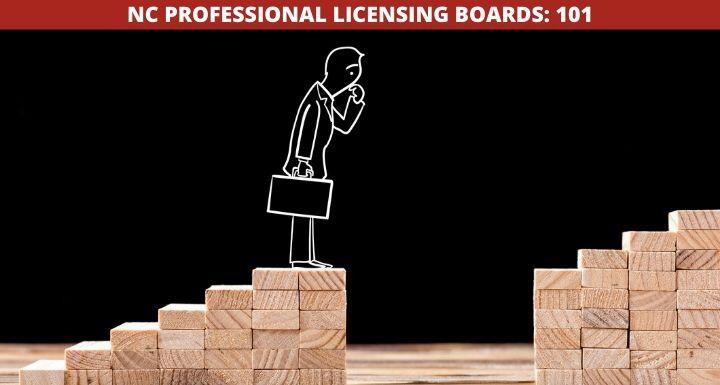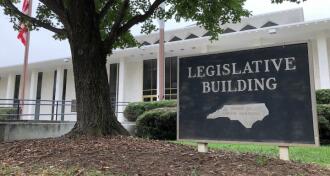Ed. Note: This is the first in a series of three articles examining disciplinary and appeals processes in front of North Carolina professional and occupational licensing boards.
In North Carolina, a significant number of occupations and professions – upwards of 180 in fact – require some type of license or permit.
The individuals and entities who hold occupational or professional licenses are subject to the rules and regulations of their respective North Carolina licensing agencies or boards.
When violations of those rules and regulations occur and are brought to the board's attention, disciplinary proceedings against the licensee are often initiated. Typically, those proceedings are adjudicated through an administrative hearing held before the licensing board if they are not resolved by the license holder and the board prior to a hearing.
While many of the rules and regulations of the State's various licensing boards are occupation-specific, North Carolina law requires that the rules the licensing boards adopt for administrative hearings be consistent with Article 3A of the State's Administrative Procedure Act ("APA").
When a disciplinary proceeding is initiated against a license holder, a critical chain of events is triggered that could result in the imposition of severe sanctions, such as suspension or revocation of the license. For many license holders, their livelihoods are dependent on maintaining a valid, unrestricted license. For this, and other reasons, when a license holder faces a disciplinary proceeding, the stakes are inherently high.
Notwithstanding the potential stakes, some license holders choose to respond to the disciplinary action without hiring an attorney to represent them. They do so at their own peril, as the actions they take (as well as those they fail to take) become part of the official record of the proceeding. This is important to take note of because an appeal of the board's decision is typically limited to the record that was created while the matter was before the board.
This series provides an overview of disciplinary hearings, how the record in a disciplinary proceeding before a licensing board is created, and the appeals process. It also addresses how a bad record, along with a license holder's failure to follow the procedural requirements of the appeals process, can limit the professional's opportunity to obtain an outcome on appeal that is more favorable to their career and livelihood than the disciplinary action being appealed.
The Disciplinary Hearing
Under North Carolina law, occupational licensing boards are required to provide their licensees with an opportunity for a hearing prior to any disciplinary action being taken by the board against the licensee. The hearing must be conducted in a fair and impartial manner, and the license holder must be given an opportunity to present evidence, examine and cross-examine witnesses, submit rebuttal evidence, and also to present arguments on issues of law or policy.
If the license holder fails to appear at the hearing after receiving proper notice, the board is allowed to hold the hearing in the licensee's absence and render a decision.
After the hearing, the board is required by law to issue a written final decision or order and to prepare an official record of the hearing.
In rendering its decision or order, the board is charged with considering the record as a whole, or at the least, the portions of the record cited by any party to the proceeding. The decision or order must be supported by substantial evidence that is admissible in accordance with the APA. The content of the board's decision or order must contain findings of fact that are based solely on the evidence presented and matters officially noticed in and during the pendency of the disciplinary proceeding, as well as conclusions of law.
The Record
In North Carolina, the professional or occupational licensing board is responsible for preparing the official record of the disciplinary hearing before the board. This record is extremely important to any future appeal and can easily be mishandled by those who do not understand its importance.
Under North Carolina law, the board must include in the official record the following items from the disciplinary proceeding:
- notices,
- pleadings,
- motions,
- intermediate rulings,
- questions and offers of proof and rulings on those offers,
- objections and rulings on the objections,
- evidence presented,
- matters officially noticed must also generally be included,
- proposed findings and exceptions, and
- any decision, opinion, order, or report by the agency and by the officer presiding at the hearing.
At the risk of stating the obvious, evidence that is not presented at the hearing is excluded from the official record prepared by the board.
Conclusion
Future articles in this series will explain the appeals process and offer practical insight into pursuing an appeal in a North Carolina professional or occupational licensing board investigation or disciplinary hearing.
Promptly hiring an attorney who has experience in administrative law and/or professional license defense may increase a license holder's chances of successfully defending an action initiated by a professional licensing board. Ward and Smith has a dedicated Professional Licensing Group comprised of a team of attorneys with a wealth of experience representing licensees through investigatory and disciplinary proceedings before the State's various licensing boards.









